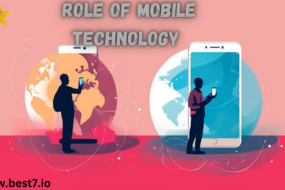
Artificial intelligence (AI) is a field of study that aims to create computers that are able to perform tasks that would traditionally require human intelligence. AI research is divided into several subfields, including machine learning, natural language processing, and computer vision. To learn about AI, you can start by reading articles and books about the subject. You can also sign up for online courses or workshops to gain more experience with AI.
1. What is artificial intelligence and what are its potential applications?
Artificial intelligence (AI) is a field of computer science that deals with the creation of intelligent agents, i.e. computer programs that can reason, learn, and act autonomously. AI has the potential to improve many aspects of human life, including safety, efficiency, and productivity. Some common applications of AI include computer vision, natural language processing, and machine learning.
2. How can you learn about artificial intelligence?
To learn about artificial intelligence, you can read books, watch movies, or listen to lectures. You can also ask questions on online forums or chat rooms.
3. What are the main concerns about artificial intelligence?
There are many concerns about artificial intelligence, but some of the main ones include the following: 1. The possibility that artificial intelligence could be used to destroy or manipulate human beings. 2. The possibility that artificial intelligence could create massive economic inequality. 3. The possibility that artificial intelligence could lead to a cyber-security crisis.
4. What are the challenges of artificial intelligence development?
Artificial intelligence development is a difficult and ongoing process. There are many challenges that need to be overcome in order to create an AI that can be effective and reliable. One of the most important challenges is developing a system that can learn and improve on its own. Another challenge is creating a system that is autonomous and can operate without human intervention. Finally, it is important to make sure that the AI is safe and does not create unintended consequences. All of these challenges will require a lot of dedication and hard work, but the rewards can be impressive.
5. What are the benefits of artificial intelligence?
Artificial intelligence has a number of benefits that can be used in a variety of industries. These benefits include improved efficiency, accuracy, and productivity. Additionally, artificial intelligence can help to reduce the number of errors made by humans, which can lead to safer and more efficient operations. Finally, artificial intelligence can help to reduce the cost of operations by automating tasks that are traditionally performed by humans.
6. What are the risks of artificial intelligence?
One of the risks of artificial intelligence is that it could be used to create weapons. This could happen if artificial intelligence is used to create weapons that are smarter than humans. This could make it difficult for humans to control them. Another risk of artificial intelligence is that it could be used to create viruses. This could happen if artificial intelligence is used to create viruses that are able to attack humans.
7. What are the ethical issues with artificial intelligence?
Artificial intelligence has the potential to greatly improve our lives, but there are also ethical concerns about its use. For example, artificial intelligence could be used to replace human workers, but it could also be used to replace human judges, lawyers, and other professionals. This could lead to unfairness and inequality. Another ethical concern is the possibility of artificial intelligence being used to create weapons or to harm other people.
8. How can artificial intelligence be used in business?
Artificial intelligence has the potential to revolutionize how businesses operate. For example, it could be used to automate routine tasks, make decisions on behalf of the company, and analyze data. In addition, AI could help companies identify trends and patterns in their data, and recommend actions to address them. Finally, AI could help companies identify and target potential customers.
Top Artificial Intelligence Companies 2022
9. How can artificial intelligence be used in education?
Artificial intelligence can be used in education to help students learn more efficiently. For example, an AI system could be used to create personalized learning plans for students based on their individual strengths and weaknesses. Additionally, AI systems could be used to help teachers identify and track student progress.
10. What are the future prospects for artificial intelligence?
There is no doubt that artificial intelligence (AI) is rapidly evolving and growing more sophisticated every day. Some experts believe that AI will eventually surpass human intelligence, and will become the dominant form of intelligence on Earth. AI has already proven its usefulness in a number of fields, including healthcare, finance, and retail. It is also being used to create new products and services, and to improve existing ones. As AI continues to evolve, it is likely to become even more important in our lives. There are a number of potential dangers associated with AI, of course. However, technology is also exciting and has the potential to change the way we live and work. So, overall, the future prospects for AI are very positive.
Conclusion:
Artificial intelligence (AI) is the process of creating a computer system that can reason, learn, and make decisions like a human. AI can be divided into two main categories: expert systems and natural language processing. Expert systems are programs that are designed to simulate the skills of a human expert, such as a doctor, accountant, or lawyer. Natural language processing is the process of understanding and responding to human language.












